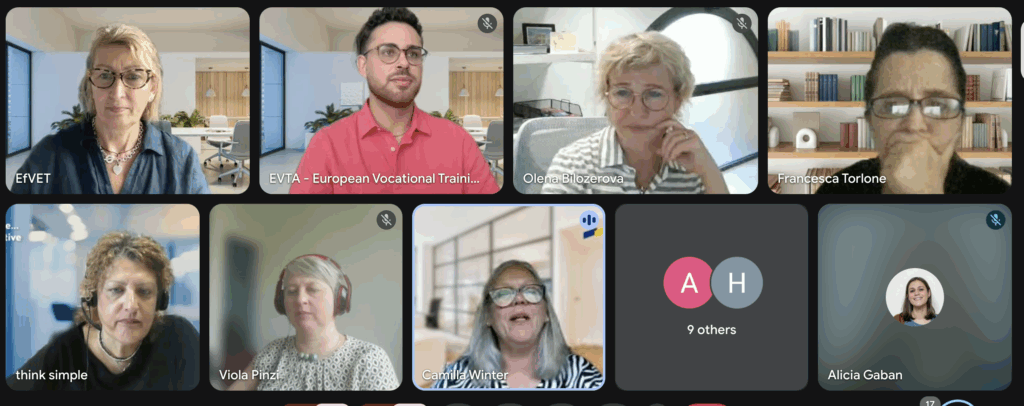Promoting Inclusion through Lifelong Learning: Webinar Shines Light on Unemployed Women’s Path to the Labour Market
27/06/2025

The Gender Equality Task Force for Lifelong Learning, an initiative promoted by EARLALL, European Forum for Vocational Education and Training (EfVET) and the European Association for the Education of Adults (EAEA), held an action-driven webinar this morning addressing a critical issue that resonates across Europe: the inclusion of unemployed women into the labour market through lifelong learning. With over 25 participants from adult learning (ALE) and vocational education and training (VET) institutions, the session provided a collaborative platform for exchanging innovative practices and discussing policy responses to support one of the most vulnerable demographics in the labour market.
The Focus: Empowerment Through Lifelong Learning
Under the theme “Inclusion of unemployed women into the labour market: The relevance of lifelong learning approaches,” the webinar emphasized that empowering women—particularly migrant and unemployed women—requires more than just upskilling. It calls for a systemic, inclusive, and gender-responsive approach across education, policy, and social support systems.
Valentina Chanina (EfVET) opened the event by welcoming participants and underlining the urgency of addressing barriers that hinder women from re-entering the workforce. Susana Nogueira (EfVET) followed with a compelling overview of the structural and social challenges faced by unemployed women, highlighting persistent gender gaps in access to training, employment, and leadership roles.
Spotlight on Good Practices and Projects Across Europe
Throughout the session, a diverse lineup of speakers showcased a range of impactful projects and approaches:
- Francesca Torlone (University of Florence) presented the SALAM – Sustainable AccessibIlity to the LAbour Market Interreg Europe project and FELIN network, illustrating how tailored pathways—not just training courses—can support migrant women from their first entrepreneurial step to their business’s first balance sheet. She emphasized the role of coordinated action by regional and local authorities—combining education, guidance, welfare, and economic policy—to create sustainable support systems.
- Ruben Abarca (EVTA) highlighted WIDCON, a project focused on boosting women’s participation in the digital economy, addressing the gender digital divide and promoting inclusion in tech-driven sectors.
- Viola Pinzi (EAEA) shared insights on how micro-credentials are empowering adult migrant learners, offering flexible, accessible pathways to validate skills and improve employability.
- Chara Stassinopoulou (P-Consulting) presented the GUIDE project, emphasizing the importance of gender-sensitive career guidance to ensure women receive the targeted support they need at all stages of their learning and employment journeys.
Looking Ahead: Advancing a Gender-Inclusive Lifelong Learning Ecosystem
Camilla Winter (Camilla Winter AB and EARLALL associate member) closed the session with a strong message of encouragement and unity. She acknowledged the wealth of strategies, recommendations, and organisations already active in this space, underlining their importance. Reflecting on the webinar, she noted that “a lot is already happening,” and expressed confidence that the Gender Equality Task Force can make a meaningful contribution to this shared effort. She encouraged all participants to join the initiative, highlighting the power of collective action: “Together, we are stronger.”
Quoting Ruben Abarca’s remarks, she echoed the sense of momentum: there is clear potential for synergies and collaboration across sectors and regions. This closing message served as a call for continued commitment and cooperation. The insights and initiatives shared during the webinar will directly inform and strengthen the ongoing work of the Gender Equality Task Force for Lifelong Learning—a joint initiative by EARLALL, EfVET, and EAEA—committed to promoting equal access and participation for all learners.
The Task Force will continue to foster exchanges, identify policy gaps, and champion good practices that place women at the heart of recovery, inclusion, and innovation in the labour market.

